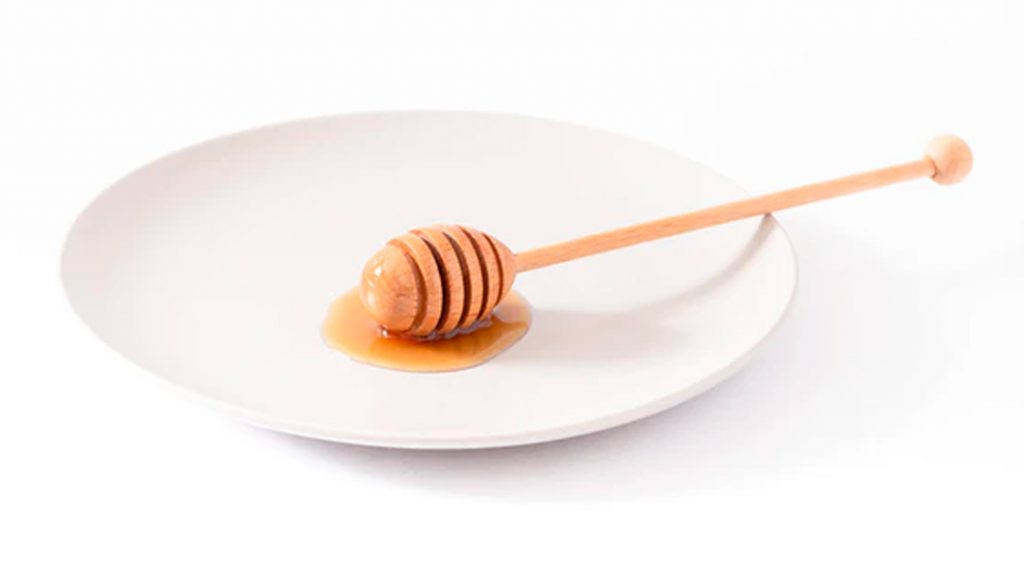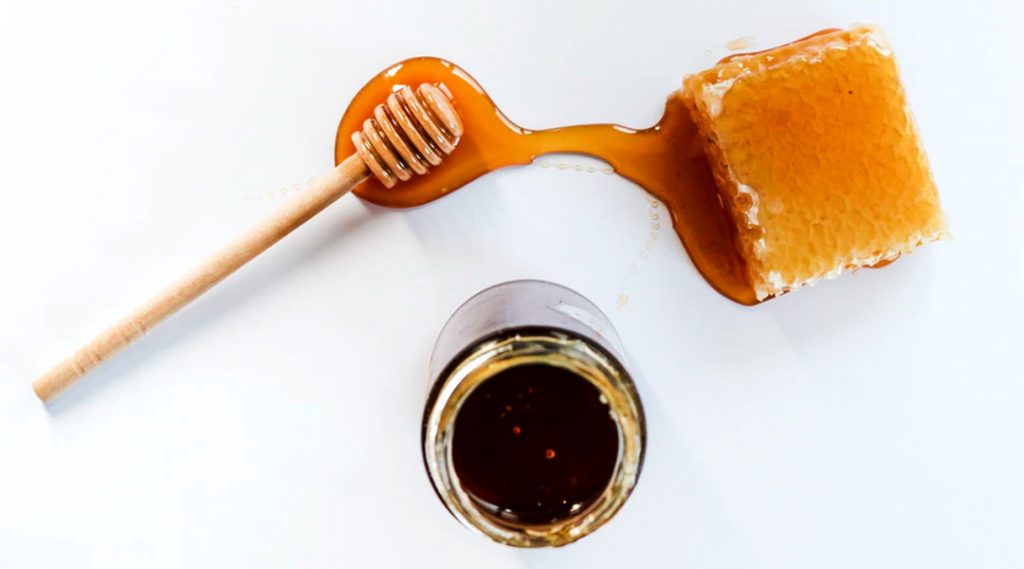There are many options to sweeten an infusion or a dessert, and we will surely wonder which is the healthiest, or the least harmful to health. Among them we can find honey.
Honey is, in fact, another form of sugar. Although it has the same basic composition as other types of sugar, it is considered a better alternative due to its nutritional value and health benefits.
It is true that honey in its natural state has beneficial properties due in large part to the presence in its composition of a few minerals, some enzymes that help wound healing, some vitamins and antioxidants.
For thousands of years it has been used for both medicinal and nutritional purposes, even the ancient Egyptians and Greeks considered it a sacred product, even using it as an antiseptic and for the preservation of corpses.

Is it healthier than sugar?
Nutritionists always indicate that it is better not to use any sweetener in coffee or tea, but it is very common to want to add something that gives it a sweet taste.
It is then that we ask ourselves which is the most suitable option: honey or sugar.
Honey has the same characteristics in terms of calories as sugar, approximately 4 kcal per 1 gram. By having the same amount of calories as sugar, its consumption must be regulated since the caloric intake is the same.
Therefore, it is advisable to use it as a substitute for sugar, but in moderation. From Maes Honey we advise you not to exceed the recommended daily amount of honey.
We must say that a small amount of honey sweetens much more than a tablespoon of sugar. Therefore, we will need less to obtain the same results in desserts or infusions.
In addition, refined sugar provides empty calories. This means that it does not have any nutrients, vitamins or minerals, while honey contains a good amount of water and nutritional properties.

Benefits and properties of honey
Depending on the variety of flowers and the type of hive, honey offers more than sixty different substances. Sugars, organic acids (citric, lactic, phosphoric …), vitamins (C, B1, B2, B3, B5), folic acid, minerals (phosphorus, calcium, magnesium, silicon, iron, manganese, iodine, zinc …) stand out. , essential amino acids, sterols, phospholipids, flavonoids, polyphenols and enzymes.
Among the most outstanding benefits, we find the following:
- Antibacterial potential. Due to the inhibins present together with glucose oxidase, they give it broad bactericidal properties.
- Strong antioxidant. Helps prevent the development of heart disease or the immune system.
- Antiseptic and anti-inflammatory. Thanks to these properties it limits the possibilities of suffering infections in open wounds or burns. It can also be used to reduce muscle inflammation.
- It favors digestion. The consumption of honey facilitates the metabolism of food, helps to relieve heartburn and even promotes proper intestinal transit.
- Relieves cough and sore throat.
- Hydration. The moisture present in honey influences not only its texture, flavor or color, but also provides moisture to our body.
- Other properties. Honey has other benefits such as sleep improvement, stress relief, fatigue reduction …


